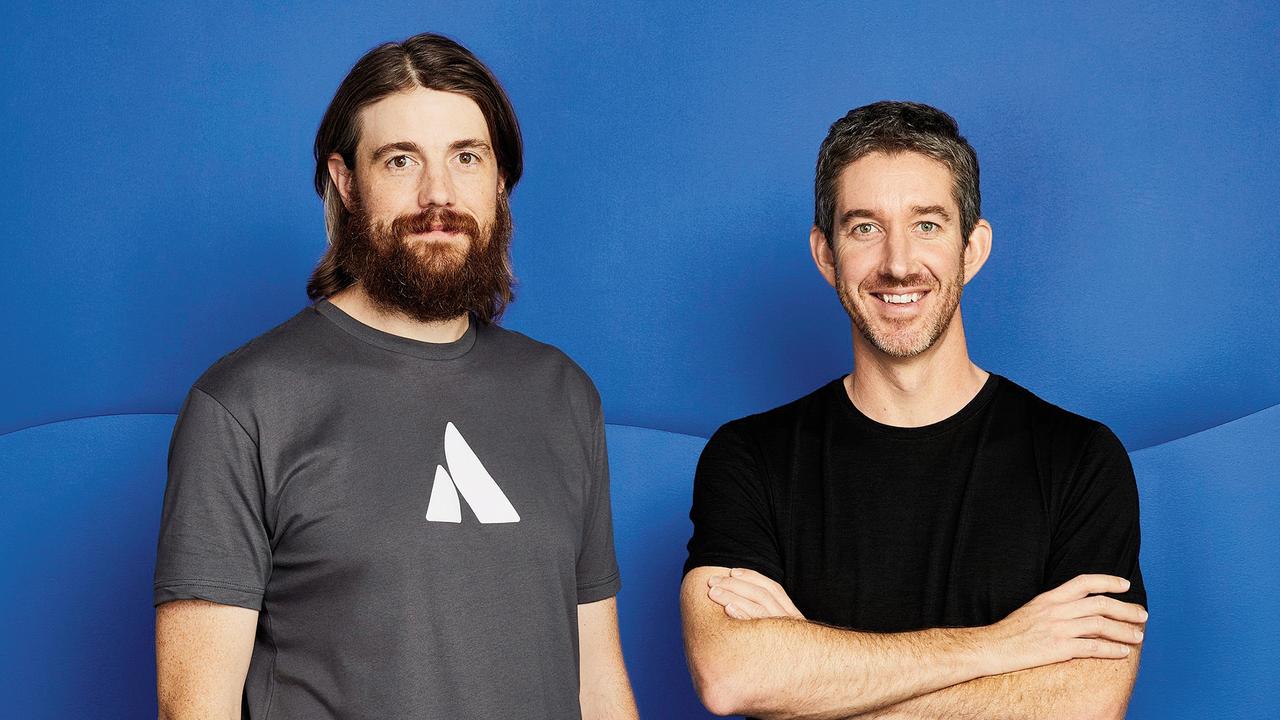How Solomon Lew plans to get his retail mojo back
The billionaire retailer has three big strategic issues to tackle to get his empire of Smiggle through to Just Jeans firing again.
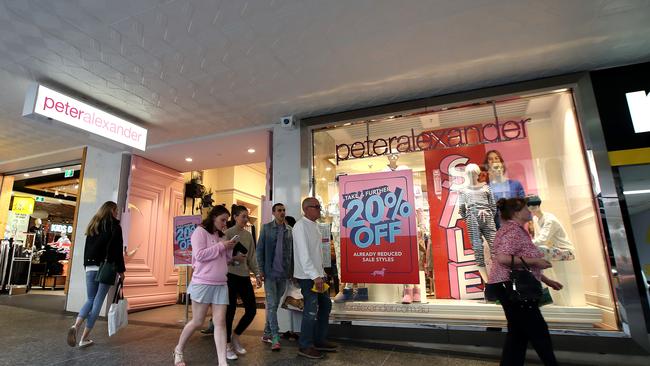
Business
Don't miss out on the headlines from Business. Followed categories will be added to My News.
Solomon Lew built his reputation around being able to spot retailing trends light years before anyone else.
And that’s why investors in his fashion empire have got so worked up over sudden problems emerging at one of his key growth brands, Smiggle.
That, and a brutally tough time to be selling mid-market fashion right now, raises the bigger issue of whether this is the right time for Lew to be engineering a high-stakes carve-up of his retailing empire.
However, the one certainty around markets is that anyone who has bet against Lew has always come out second best.
The billionaire will need to draw on all of his six decades of retailing and deal making experience to steer Premier Investments, the owner of Just Jeans, Smiggle and Peter Alexander, through the coming 12 months to get its mojo back.
Lew has three big strategic issues to tackle, and he is running head first into each one.
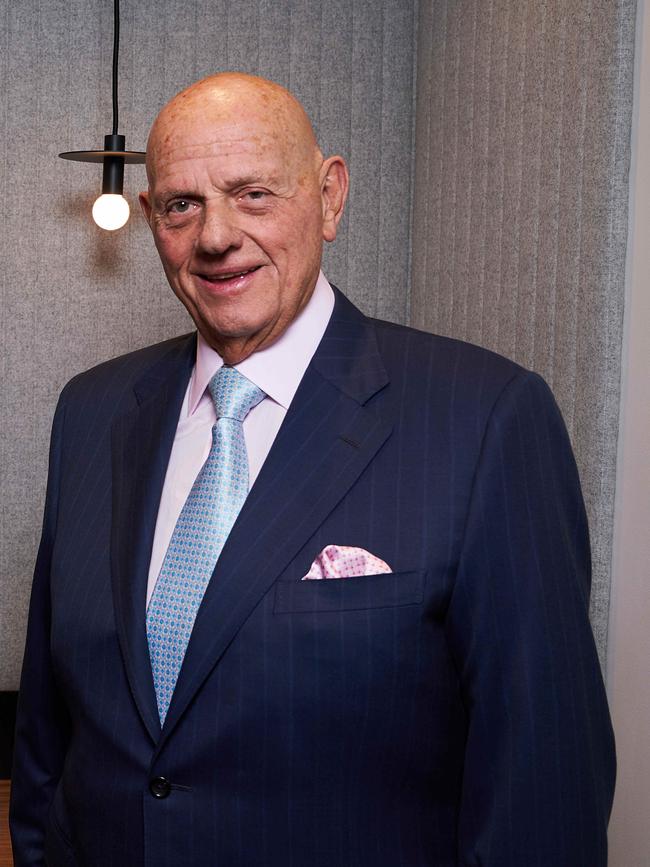
The first and most pressing is Smiggle, his kids’ stationery business, which for recent years has been the power brand that has pushed into 20 markets.
Smiggle is his second-biggest earnings division and, since June, has been going through a messy management shake-up. Former long-serving boss John Cheston jumped ship to run Brett Blundy’s Lovisa brands and several other executives have left the business.
This caught Lew off guard, just as much as the 7.4 per cent crunch in Smiggle’s sales over the past year. Total sales are now 3.4 per cent lower from before the Covid-19 pandemic. The UK and Asia, Smiggle’s two big growth bets, have been hit particularly hard. The sagging sales and poor start to the new financial year were behind the 8 per cent share price slide on Wednesday.
The Smiggle situation has quickly turned acrimonious, with Lew claiming Cheston was dismissed for “serious misconduct” and consequently cancelled millions of dollars worth of the former executive’s options. (Cheston has countered this by saying he resigned and rejects any allegations of misconduct). Lew also blamed Cheston for the poor numbers, saying focus was lacking in the brand.
The disruption and loss of the CEO is enough in a normal market but Smiggle is battling a broader slowdown and its customers – largely young families – are feeling the pinch of cost-of-living pressures more than any other. Lew is in the process of recruiting a new boss, and rebuilding his executive ranks, but the management disruption and uncertain outlook over momentum has rightly forced him to hit pause over any plans to pursue a spin-out of the business. This could now be some way off.
Myer bound
The second big issue is Myer. Talks are under way with Olivia Wirth’s Myer to fold in Lew’s portfolio of domestic brands covering Just Jeans, Jay Jays, Dotti and Portmans as well as some 700 stores. The brands are mature but generate significant cashflow with Lew, building so that profit margin is made at each step of the way.
Lew and his investors are technically on both sides of the deal which is increasingly looking like a reverse takeover – although initiated by Wirth. Premier is Myer’s biggest shareholder with a more than 31 per cent stake. Lew points out that all the machinery, the margin and upside is Myer’s for the taking given Premier’s strengths in supply chain, distribution and in-house sourcing.
Lew, for his part, is eyeing Myer’s well regarded loyalty scheme which has more than 10.5 million members and he sees potential in the department store he has long been critical of to generate better margins from private labels over concession stands.
The outcome of the due diligence should be known within the next few months, potentially in time for the annual meeting in December.
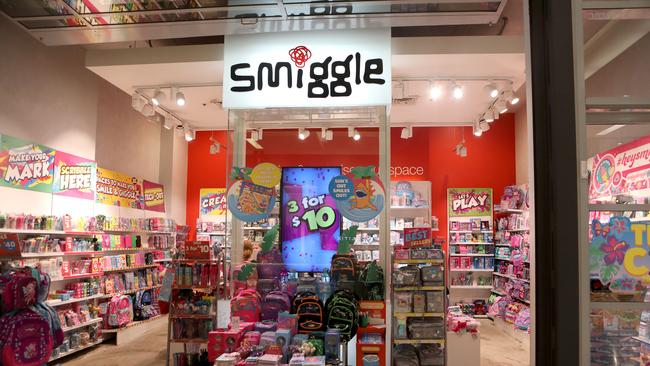
It’s likely a deal will be proposed, but the key hinges on the valuation to be put on the transaction. Any deal will be a major shift of Myer’s business and boosting the departments store’s revenue by a third. A merger of the brands into Myer will put Premier back on the path of its original aim which was to be an investor in brands, not an operator.
“We haven’t seen any red flags,” Lew says of the due diligence process, but has declined to put time frame on completion.
“You’ve got a company like Premier that makes approximately 20c in the dollar, and you’ve got a company like Myer that makes one and a half cents of the dollar.
“So obviously with the right structure, there should be some very big upside.”
If the deal goes ahead Premier shareholders will own between 65 and 70 per cent of the stand-alone merged business putting a valuation of more than $4.2bn based on current market values.
Margin lift
Finally, Peter Alexander is the brighter spot in Lew’s Premier puzzle. The flagship pyjama franchise has been earmarked to be spun out and work on this is moving ahead behind the scenes, although Myer is taking the priority.
The brand continues to boom in a tough market and has sales now passing half a billion and up more than 6 per cent on the year, helped by store openings.
To put that in context, Peter Alexander is now generating as many sales as legacy brands Just Jeans, Portmans and Dotti combined. And with plans for further international expansion, there are no signs of slowing down.
Any spin-off would be significant as well as a distraction. Lew says the edge for the Peter Alexander brand is the broadbased reach, appealing to men and women as well as young and old.
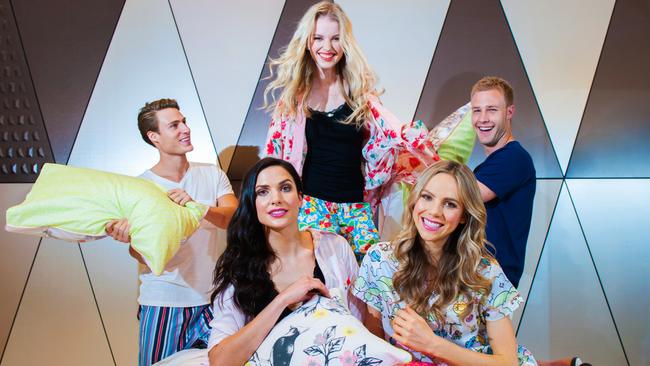
The big unknown over all the strategic issues is the tough retail market although Lew’s low-cost structure, next to no debt, and laser focus on profit margins, will help see him though. Lew today generates gross margins of more than 62 per cent – nearly double the level that he was getting before the Covid-19 pandemic. A smaller store footprint and higher retail productivity is helping returns. This means even with a sales slowdown the business is generating more value from every item sold.
And worth noting is that Lew is quietly cashing up and is sitting on a record $410m, which could be used to fund buyouts on the cheap in the face of a broader retail shake-out.
Some funds will be used to support his key brands if, as expected, they go down the path of a spin-off.
Lew is banking on a strong Christmas, a good Black Friday and a strong new year, but as a former Reserve Bank board member he is a realist. The economy too needs time to regain momentum.
“I go to the shopping centres. I see a lot of people in the shopping centres, but they’re all looking for value … You’ve got to be able to give value,” says Lew, the retailer.
eric.johnston@news.com.au
Originally published as How Solomon Lew plans to get his retail mojo back



